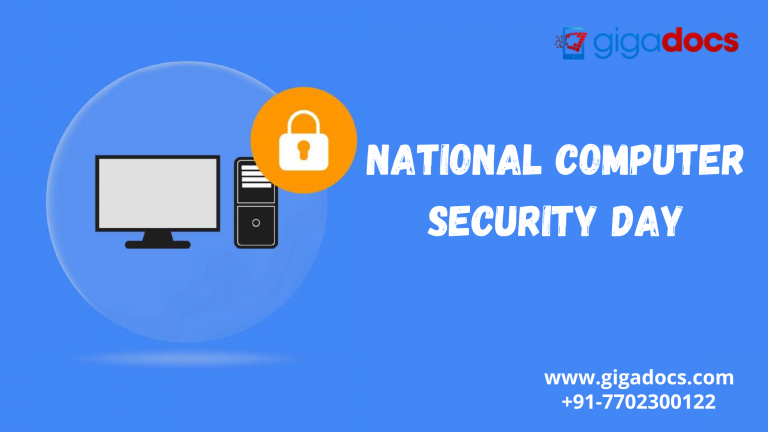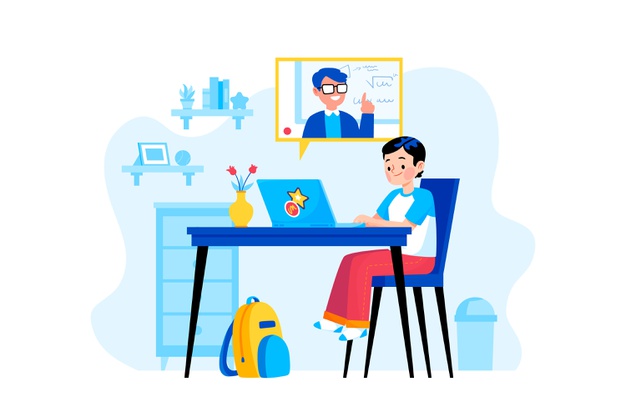We, as adults, can’t imagine a life without technology and the internet. The same applies to our young ones, who are first exposed to technological devices as toddlers. This goes without saying that the young minds of today, associate their lives more with computers, the internet, and other gadgets. Technology has bought new experiences to young minds and changed how education is perceived in today’s world.
Computers can provide young children with both information and inappropriate content. The difference lies in the security measures being adopted. Website blockers and internet filters can go a long way in keeping your children safe during this digital age. Early internet use can instill good web judgment and habits in children.
National Computer Security Day
On November 30th, National Computer Security Day was observed, and it began in 1988 when computers became commonplace. This day serves as a reminder to protect our computers and children from the internet’s negative psychological effects.
Parental controls are required if you have young children who use the internet to keep them safe from online threats. These threats include predators, cyber criminals, cyberbullying, and inappropriate content. On this National Computer Security Day, Gigadocs investigates the advantages and disadvantages of computer use and how we, as parents, can mitigate the psychological effects of internet use.
The Advantages of Parental Controls in Computer Security
- Block unwanted content
Even the most basic parental controls, such as Google Safe Search, tend to include a feature that blocks inappropriate content, whether a webpage containing a prohibited word, such as “drugs,” or a website that lacks a security certificate. This prevents your child from accessing content that could be detrimental to their mental health, have a negative influence, or allow malware download.
- Intervene in dangerous situations
As a parent, watching over your kids is essential. It always helps you to intervene when you need to, especially when something is going on. Intervening in dangerous situations will help you monitor your child’s emotional state, detect cyberbullying instantly, and take preventive actions against it.
- Keep track of your children’s screen and online time.
Watch out for your child’s time spent daily on the internet. Be aware of their online time utilizations such as playing online games, browsing social media, and using the internet to study. If you know your child’s activity online, you can intervene, talk, and limit (if needed) your child’s time spent online.
- Prevent unauthorized spending instances.
You must have noticed instances when a child spends their parent’s money online while playing an online game. This is why many parents use parental controls to prevent their children from making online purchases without the registered parent’s permission.
When Should Parents Watch Out?
- Technologically savvy children can surpass the parental controls
As technology advances, our children are better positioned than we are to learn and adapt to these changes. Because parental controls are device or network-dependent, many children now have the sufficient technical knowledge to circumvent or altogether remove installed parental controls.
- Watch out for predators and scammers from contacting you.
Parental control solutions that enable you to monitor your child’s conversations to identify online predators are only useful if you use them. You can’t stop it if you don’t notice it. Because parents are frequently time-pressed, much can go unnoticed, especially when predators pose as innocent children to bring harm.
What Can Parents Do to Help Their Children?
Risks associated with online access include inappropriate content, cyberbullying, and online predators. Predators may pose as a child or teens looking for a new friends on social media apps and websites where children interact. They may press the child to exchange personal information such as their address and phone number or encourage children to call them after seeing their phone number on the caller ID.
Parents should know what their children see and hear online, who they meet, and what information they share about themselves. We advise you to communicate regularly with your children, be computer-friendly to protect them, and monitor their activities.
Participating in the Online Activities of Children
More important than blocking offensive content is teaching your children safe and responsible online behavior and monitoring their Internet usage.
Basic online safety guidelines to share with your children:
- Personal information should never be revealed, such as an address, phone number, school name, or location.
- Use only a screen name, and never share your password (other than with your parents).
- Never agree to meet in person with anyone you meet online without parental permission and/or supervision.
- Follow both your family’s and the Internet service provider’s rules.
- Never share or trade personal photographs.
- Never respond to a threatening email, message, social media post, or text message.
- Always tell a parent or another trusted adult about scary or hurtful communication or conversation.
Basic parental supervision guidelines:
- Spend time online with your children to teach them appropriate online behavior.
- Keep the computer in a common area where you can keep an eye on it, rather than in individual bedrooms. Keep track of your child’s time on your smartphone or tablet.
- Make a note of your children’s favorite websites for easy access.
- Examine your credit card and phone bills for any unusual account charges.
- Determine whether your child’s school, after-school program, friends’ homes, or any other location where children may use a computer without your supervision provides online protection.
- Take your child’s report of an uncomfortable online exchange seriously.
Gigadocs for your Child’s Health
Children who spend more than two hours per day on a computer are more likely to have psychological problems than others. We at Gigadocs believe in a balanced approach to tech-enabled education that is both fun and informative, technological but hands-on, and modern yet traditional.
Our dedicated and professional psychologists help nurture your child’s cognitive, social, and emotional development by striking the perfect balance. Book a pediatric psychologist on the Gigadocs app today to reverse the adverse effects of computer addiction and its impact on the child’s mental health.
To Book- Download the Gigadocs App from-
- IOS App – apple.co/2W2iG4V
- Android App – bit.ly/33AQoRC
To know more e-mail, at info@gigadocs.com




